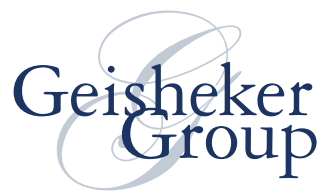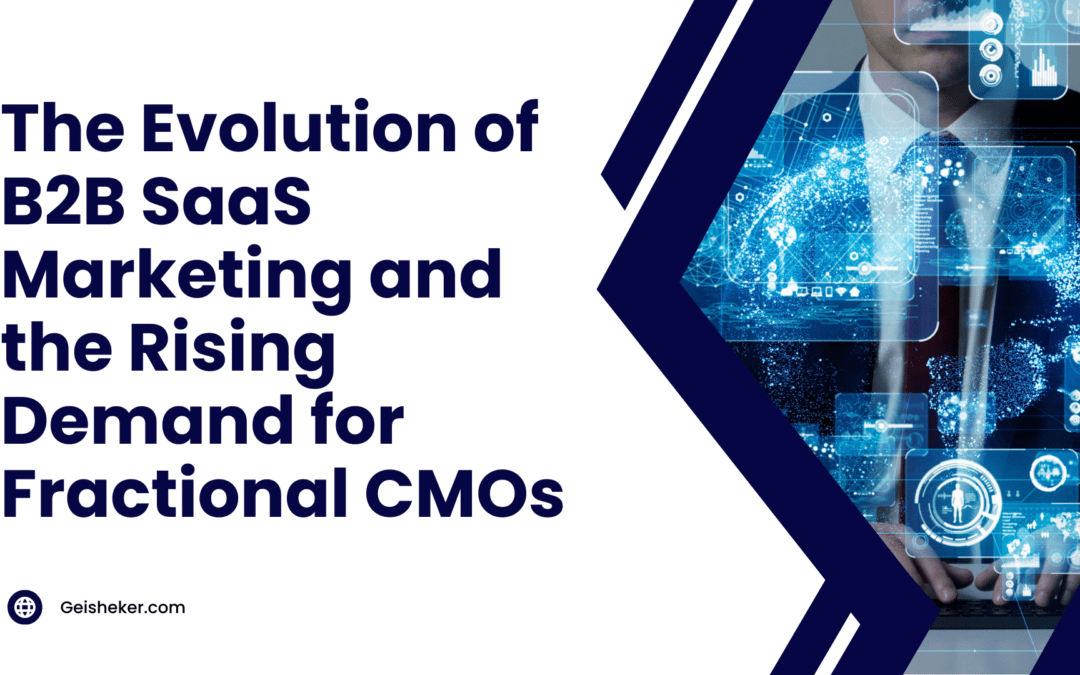The business-to-business (B2B) software-as-a-service (SaaS) industry has evolved rapidly over the past decade. As the industry matures and competition intensifies, B2B SaaS companies face increasing pressure to refine their marketing and growth strategies. At the same time, the Chief Marketing Officer (CMO) role has grown increasingly complex and demanding. These converging trends have led to the rise of a new model – the fractional CMO.
The Early Days of B2B SaaS Marketing
In the early days of SaaS in the 2000s, marketing activities tended to be relatively simple and tactical. Most early SaaS providers focused heavily on inbound lead generation through blogging, search engine optimization, and simple email nurturing campaigns. The goal was to drive as many free trials as possible, hoping a small percentage would convert to paying customers.
There was less emphasis on sophisticated messaging, positioning, and customer segmentation. Budgets were tight, and there was limited access to marketing talent and expertise. Often the CEO or a scrappy early employee was responsible for leading marketing, frequently in addition to other major duties.
The Key Inflection Points
Several key inflection points led to the rapid evolution and professionalization of B2B SaaS marketing. These included:
Rise of digital marketing – New channels like social media, pay-per-click, and marketing automation technology allowed for more sophisticated digital marketing campaigns.
Increased competition – As the industry grew crowded, companies needed to differentiate themselves with smarter positioning and messaging.
Need for scale – To drive growth, companies realized they needed well-defined target customer profiles, multi-touch nurturing campaigns, and expanded content.
Investment capital – VC funding allowed companies to invest more in experienced marketing talent.
The Modern B2B SaaS Marketing Stack
Today’s leading B2B SaaS marketers have access to a sophisticated martech stack that allows them to better target, nurture, and analyze customer campaigns. This includes:
- Marketing automation platforms like HubSpot and Marketo to nurture complex sales funnels from first touch to customer.
- CRMs like Salesforce to manage prospect and customer data and interactions.
- Advertising platforms like Google Ads, Facebook Business Manager, and LinkedIn to reach targeted audiences.
- Web analytics tools like Google Analytics and Mixpanel to gain insights from customer behavior.
- PR and communications tools like Cision and Muck Rack to manage external communications.
- Design and imagery tools like Canva and Getty to create high-quality branded assets.
As the martech landscape explodes, stitching these solutions together, analyzing data, and driving insights have become critical marketing capabilities.
The Rising Strategic Importance of the CMO
As B2B SaaS marketing has grown more complex, the importance of the CMO role has heightened considerably. No longer a tactical role, the modern CMO is expected to:
- Serve as a strategic partner to the CEO and executive team
- Own the positioning, messaging, and go-to-market strategy
- Manage a team of subject matter experts across various specialties
- Oversee a technology stack with dozens of complex, integrated tools
- Analyze performance data to optimize campaigns and spending
- Orchestrate activities across departments like sales, customer success, and product marketing
- Build executive relationships with analysts, investors, and the media
The challenges facing CMOs have multiplied along with the growing demands. The average CMO tenure has fallen to just 22-32 months by some estimates. Many observers believe the position has become too overwhelming in scope for any one executive to handle.
The Rise of Fractional CMOs
In response, a new model has emerged – the fractional Chief Marketing Officer. Fractional CMOs are experienced marketing executives who offer their services to multiple clients part-time, as needed. This helps B2B SaaS companies in several ways:
- Access top-tier talent – They can bring in CMO-level skills without requiring a full-time salary.
- Specialized expertise – They may offer specific skills in areas like branding, messaging, product marketing etc.
- Flexible capacity – Workloads can scale up and down as needed to meet business demands.
- Cross-pollination – They apply approaches, ideas, and best practices learned across various companies.
According to Forrester Research, 57% of marketing leaders rely on an external network of on-demand marketing experts. Leading fractional CMO firms like Chief Outsiders, Part-Time CMO, and 10x Manage report surging demand, particularly among VC-backed companies.
Learn about Fractional CMO cost.
Essential Skills for the Modern B2B Fractional CMO
To thrive in today’s complex marketing landscape, Fractional CMOs must possess a diverse set of capabilities including:
Leadership – Ability to set strategy and vision, manage people, influence executives, and align activities across departments.
Analytics – Data, quantitative, and analytical skills to derive insights to guide spending and optimization.
Technology – Understanding of martech stacks and how to leverage tools for automation and efficiency.
Positioning – Ability to define competitive positioning and messaging that resonates with the target buyer.
Product Marketing – Expertise in product positioning, market analysis, and translating product capabilities to customer benefits.
Media Relations – Experience engaging with industry analysts and journalists and using earned media to drive brand awareness.
Many legacy CMOs rose through traditional consumer marketing roles focused on areas like communications, advertising, and public relations. While these remain useful skills, the modern environment demands a much broader, analytics-driven skillset.
The Rise of Customer-Centric Growth Strategies
The most successful modern SaaS marketers have moved beyond traditional sales-focused marketing to embrace customer-centric growth strategies. These include:
Customer Journey Analysis – Using data and research to fully map out and understand the end-to-end customer journey before, during, and after the sale.
Whole-Funnel Approach – Developing targeted messaging and campaigns tailored to customers at each stage of the journey – from awareness to consideration, evaluation, purchase, and renewal.
Customer Success Integration – Collaborating with customer success teams to understand product usage data, user sentiment, common questions and challenges.
Retention and Upsell – Identifying expansion opportunities within existing customers based on analysis of usage data and customer segmentation.
Reviews and Referrals – Proactively generating and promoting positive reviews and case studies to influence prospect purchase decisions.
Community Building – Developing customer communities to cultivate loyal brand advocates who provide referrals, references, and reviews.
As the subscription-based SaaS model makes business success dependent on loyalty and retention, customer centricity has become essential to growth.
Why Fractional CMOs Must Become Growth Leaders
In today’s fiercely competitive B2B SaaS landscape, sustainable and scalable growth cannot happen without an experienced marketing leader who sits at the strategy table. Legacy notions of marketing as a siloed cost center tasked with loosely driving leads are outdated. In modern customer-centric organizations, the mandate for fractional CMOs is to architect and operationalize data-driven growth engines that align to the company’s vision and business model.
By unifying capabilities across positioning, messaging, content development, campaign management, and performance analytics, B2B SaaS Fractional CMOs have become critical growth drivers helping to differentiate in crowded markets. The ROI of investing in fractional or full-time executive marketing talent has become inescapable as the link between sophisticated marketing and company expansion strengthens. Those still debating the merits risk losing pace with the leaders who have already embraced modern B2B demand generation strategies and all-star marketing talent.
Hire a Leading B2B SaaS Fractional CMO
If your company needs a B2B SaaS fractional CMO, consider working with Peter Geisheker. Peter has been providing Fractional CMO services for over 20 years and has expertise in growth tactics and conversion optimization. View Peter’s SaaS fractional CMO case studies.


